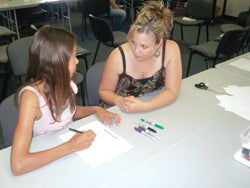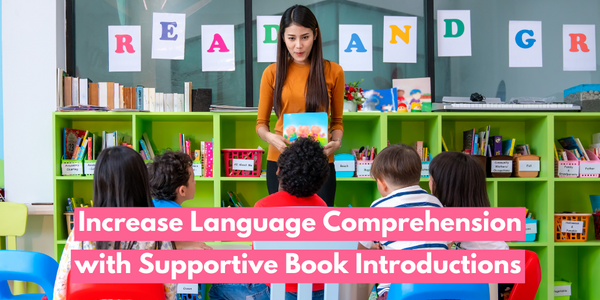
Due to the popularity of our posts on the role of parental involvement in children's literacy , which present ideas for Family Literacy Workshop activities taken from Family Literacy Workshops for Preschool through Grade 6: A Research Based Approach , we've decided to keep the subject a recurring topic here on our blog, with a new post every week or so offering new free activity downloads and further instruction on how to hold successful family literacy workshops at your school and tips for taking literacy home. Most Tuesdays you can check back here and find this kind of content. You can see the earlier posts here . Today we begin excerpts from Workshop #3: Supporting Homework. You can download this week's free handouts—a monthly homework schedule sheet and a weekly one—at the bottom of the page!
Supporting Homework
Let parents know that their role in homework is to help their child manage his or her time and to develop independent study and work habits. This workshop will provide parents and their child with a framework for scheduling work and play.
Using a Homework Calendar
 Parents can help their child make a homework calendar. At the end of this blog post, we have provided a downloadable sample of a month-long calendar and week-long calendar. These can be reproduced and used for each month or week of the school year. The month-long calendar will probably work better for young children, and the week-long for older children.Parents should be encouraged to develop a homework routine for their children. Doing this will help children develop better use of their time and become more independent.
Parents can help their child make a homework calendar. At the end of this blog post, we have provided a downloadable sample of a month-long calendar and week-long calendar. These can be reproduced and used for each month or week of the school year. The month-long calendar will probably work better for young children, and the week-long for older children.Parents should be encouraged to develop a homework routine for their children. Doing this will help children develop better use of their time and become more independent.
Let parents know the maximum amount of time their child should be spending on homework each night. A strong suggestion is that in preschool to 2nd grade the homework load should be approximately 15–20 minutes per night; in 3rd–4th grade it should be approximately 30 minutes; and in 5th–6th grade it should be approximately 30–45 minutes.
At least 15 minutes of homework time should be a reading-related activity, either the child being read aloud to or the child reading to the parent.
Parents should use the following guidelines when helping students plan their homework calendar:
• Review what homework they have each night, and how long the assignment(s) should take.
• Extracurricular activities the child has (sports, dance, clubs).
• Social activities (movies, birthday parties).
• Family activities.
Students should take this calendar to school every day. This will serve as a good way for teachers to communicate with parents. Parents can also be encouraged to correspond with teachers by writing on the calendar.
~~~
Below are this week's handouts to download . Remember to check back next Tuesday for another post on Family Literacy!
- Tara Rodriquez






